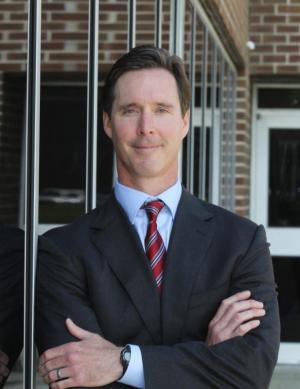A couple weeks after the conclusion of his first budget process as governor, Gov. John Carney didn’t mince words about the job the state’s legislators did filling a nearly $400 million shortfall on a $4.1 billion budget for Fiscal Year 2018.
“We fixed the problem in the worst possible way, with an increase to the real estate transfer tax,” said Carney to Democrats from the 20th Representative District during their monthly meeting July 20 at Fish On in Lewes. “When the economy goes down, the revenue from that tax really goes down with it.”
After passing a short-term appropriation measure, members of the General Assembly took until July 3 to produce a balanced budget for a fiscal year that was supposed to begin July 1. The 1 percent real estate transfer tax increase, expected to produce $45 million in fiscal 2018 and approximately $72.9 million in fiscal 2019, wasn’t the only revenue measure taken.
Additional state revenue measures included $116 million through an increase in the corporate franchise tax; $11.6 million on a 50-cent-per-pack increase on cigarettes and other tobacco-related products; $5.2 million from a tax increase on beer, wine and spirits; and $4.5 million in across-the-board increases to the filing fees associated with Department of Insurance filings.
Carney said the budget isn’t too disruptive to the status quo and preserved much of the funding from last year into this year, but, he said, there will be some tough decisions next year.
“This is a revenue base that’s not perfect,” he said. “There’s still a lot of work to do.”
A more stable source of revenue Carney said he wants to implement is an increase in the personal income tax, with the creation of a new, higher tax bracket for the state’s wealthiest. There was discussion from the state’s top Democrats during the budgeting process, but in the end, that’s all it was.
It was a modest, fair proposal, said Carney. It would have been a start toward the structural change needed, but it wasn’t done, he said.
State Treasurer Ken Simpler, a Rehoboth native, agrees with the governor structural changes are needed, but he said he would like to see changes on the spending side as well.
In an interview prior to Carney’s appearance, Simpler, like many of his Republican brethren, said he would like to see a change in the threshold for how much money is available for the budget from year to year. The state is constitutionally limited to spending no more than 98 percent of projected revenues.
Simpler said this creates a problem when revenue is high one year and then low the next. It means the state struggles to keep up with those higher expenditures when the economy isn’t as robust as the year before, he said.
Simpler said he would like a more modest approach, that sees the state save money when revenue is higher than expected to be used when revenue is lower than expected. He said instead of allowing spending to grow nearly 5 percent one year and as little as 1 percent the next, there should be an effort to cap spending near 3 percent from year to year.
A change of this nature would take a constitutional amendment, which means it would have to be approved by two different General Assemblies. Simpler said he knows it’s not an easy ask.
Simpler is optimistic structural changes can happen in Delaware, but it’s going to take work from both sides to get it done, he said.
“Lets not make compromise a dirty word,” he said. “[Delaware’s] size is an advantage. We are not resource poor. The question will be how we marshal those resources over the next decade.”
Chris Flood has been working for the Cape Gazette since early 2014. He currently covers Rehoboth Beach and Henlopen Acres, but has also covered Dewey Beach and the state government. He covers environmental stories, business stories and random stories on subjects he finds interesting, and he also writes a column called Choppin’ Wood that runs every other week. He’s a graduate of the University of Maine and the Landing School of Boat Building & Design.





















































